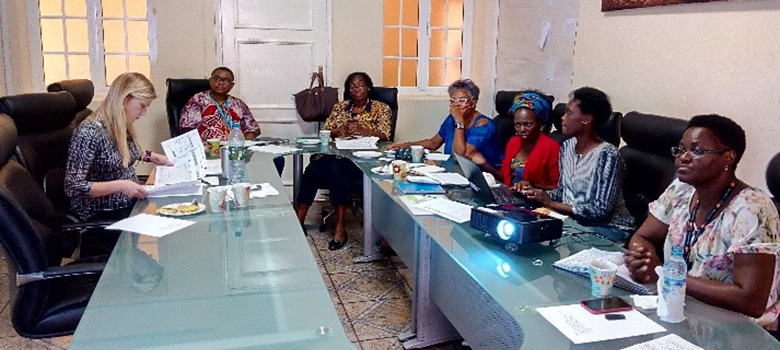
Ensuring access to contraception across Angola’s 18 provinces is a daunting task for a single organization. But a new, GHSC-PSM-led committee convenes international donors, implementers and government stakeholders to improve supply chain efficiencies, close information gaps and ultimately, improve commodity security throughout Angola.
The Partners’ Logistics Committee for the Coordination of Reproductive Health and Contraceptive Commodities is an open forum for stakeholders active in reproductive health and maternal and child health in Angola. Participants include the Angolan Ministry of Health, the United Nations Population Fund (UNFPA), USAID, the World Bank, Population Services International (PSI), the World Health Organization (WHO), and GHSC-PSM.
At each monthly meeting, participants discuss, coordinate and plan upcoming initiatives. Topics include:
• Advocacy to build a global political commitment to supplying high-quality, affordable commodities
• Building national capacity to forecast, finance, procure and deliver reliable reproductive health commodities
• Coordination among partners to simplify procedures, minimize costs and maximize efficiency
As a result of the meetings, participant organizations now share their respective monthly inventories of supplies at the central medical store, also called CECOMA. Previously, poor communication and management errors resulted in key health commodities being lost or expiring on warehouse shelves. But with the committee’s improved communication and transparency, partners and GHSC-PSM can ensure that these supplies — which include critical medicines — are distributed and ultimately available to those who need them.
The director of the National Reproductive Health Department, Henda Aline Vasconcelos, said, “With the monthly technical working group meetings with partners, the Reproductive Health Department is able to share information among partners for improved decision-making based on best practices, which strengthens good relationships in the reproductive health sector.”
Rebecca Turner, GHSC-PSM’s Angola country director, explained that each participating organization has comparative advantages. By working cohesively as a coalition, those advantages can be leveraged to achieve better outcomes than any organization could individually.
“Ensuring reproductive health is too great a challenge for any one agency, so it remains a group effort to establish secure, efficient and reliable systems to supply and deliver reproductive health commodities. We wanted to create an open forum for partners to not only hold each other accountable to our work plans, but to also have a space to be creative and brainstorm solutions to difficult logistics challenges,” Turner said.
GHSC-PSM is also leading the entry of data collected by the group to the international Procurement Planning and Monitoring Report (PPMR), which provides international partners and other reproductive health service providers with critical information about the status of reproductive health commodities globally.